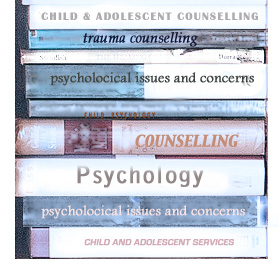While every child will at times be inattentive, hyperactive or impulsive, the difference with children who have ADHD is that these symptoms will be overabundant, happen in all settings and be severe enough and persistent enough to interfere with their learning and relationships.
What is attention deficit hyperactivity disorder?
Attention deficit hyperactivity disorder (ADHD) is one of the most common childhood disorders that can continue through adolescence and adulthood.
Symptoms include difficulty staying focused and paying attention, difficulty controlling behavior, and hyperactivity (over-activity).
Symptoms in children and teenagers
The symptoms of ADHD in children and teenagers are well defined. The main symptoms of each behavioural problem are detailed below.
Inattentiveness
The main symptoms of inattentiveness are:
- a short attention span
- being easily distracted
- making careless mistakes, for example in schoolwork
- appearing forgetful or losing things
- being unable to stick at tasks that are tedious or time consuming
- being unable to listen to or carry out instructions
- being unable to concentrate
- constantly changing activity or task
- having difficulty organising tasks
Hyperactivity
The main symptoms of hyperactivity are:
- being unable to sit still, especially in calm or quiet surroundings
- constantly fidgeting
- being unable to settle to tasks
- excessive physical movement
- excessive talking
Impulsiveness
The main symptoms of impulsiveness are:
- being unable to wait for a turn
- acting without thinking
- interrupting conversations
- little or no sense of danger
While ADHD is recognised as a disorder that is distinct from other childhood disorders, many of the symptoms of ADHD are shared by other disorders creating uncertainty and confusion in parents and making establishing a diagnosis difficult.
Related conditions in children and teenagers
Anxiety
Some children with ADHD may have an anxiety disorder that causes them to worry and be nervous most of the time. Your child may also have physical symptoms, such as a rapid heartbeat, sweating and dizziness. Read more information about anxiety.
Depression
It is also possible for children with ADHD to develop symptoms of depression as a result of their condition.
Learning difficulties
It is thought that around a third of children with ADHD also have learning difficulties, such as dyslexia (difficulty reading and spelling words).
Oppositional defiant disorder (ODD)
Oppositional defiant disorder (ODD) is common among children with ADHD. It is defined by negative and disruptive behaviour, particularly towards authority figures such as parents and teachers.
Sleep problems
Children with ADHD can be hyperactive and find it difficult to sleep at night. They may experience irregular sleeping patterns.
How Can I Help my Child?
If your child has ADHD, their symptoms usually become noticeable before the age of seven, with a diagnosis usually made between the ages of three and seven.
ADHD can cause serious problems in a child’s life, and can often lead to underachievement at school, poor social interaction with other children and adults, and problems with discipline.
Addressing your concerns for your child with a Psychologist or Counsellor before their difficulties become entrenched is an important step you can take for your child.
Cottesloe Counselling Centre – Child and Adolescent Psychology Clinic
About our Clinic
Cottesloe Counselling Centre Child and Adolescent Psychology Clinic provides assessment and treatment of behavioural, social, emotional, and learning problems in children, adolescents and their families.
The Centre provides a comprehensive range of mental health and early identification and intervention services, focussing on growth and development in the early years and promoting wellbeing during childhood and adolescence.
The Centre’s Clinical Team are all experienced specialists in child and adolescent mental health, and are registered with their respective professional bodies.
The Centre uses evidence-based interventions, recommended therapuetic methods and accurate psychometric tools to achieve the best results for children and their families.
If you are concerned that your child may have ADHD and would like more information about our assessment and psychological treatment plans , please contact our Child and Adolescent Psychology Clinic at [email protected] .

